Recurrent Squamous Cell Carcinoma Arising Within a Linear Porokeratosis
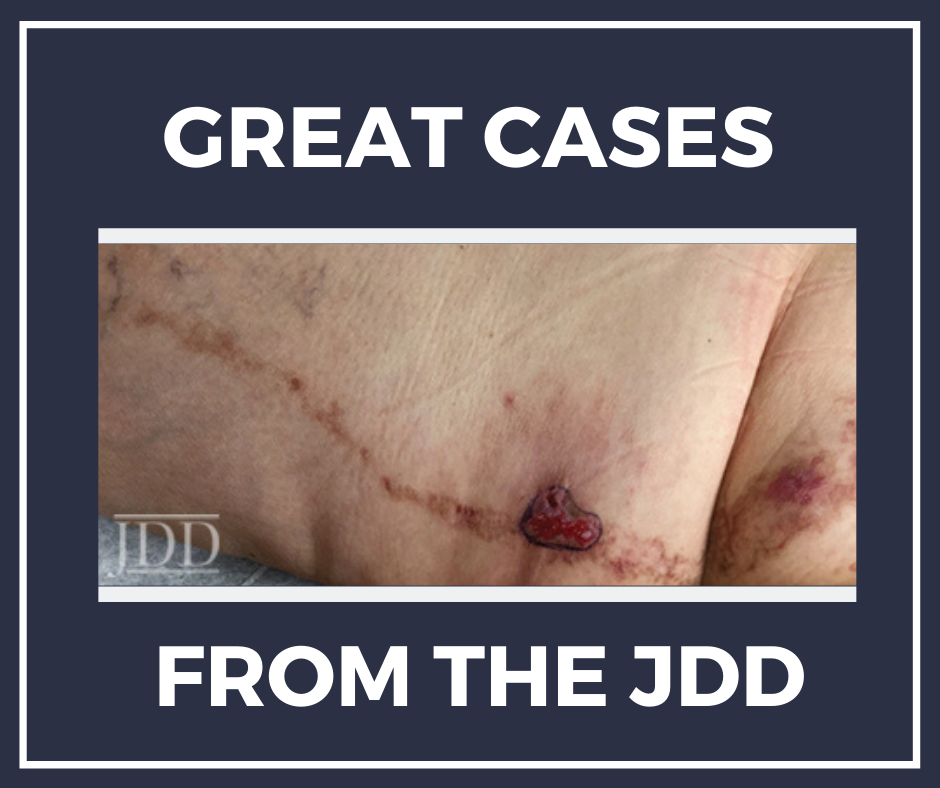 JDD authors Amelia M. Abbott-Frey BA, Alexandra J. Coromilas MD, George W. Niedt MD, and Jesse M. Lewin MD report a case of linear porokeratosis with recurrent malignant degeneration to squamous cell carcinoma (SCC) recurring six years after excision of initial SCC.
Case Report
A 79-year-old woman with a history of hypertension and hypothyroidism presented with a friable tumor within a lesion o …
JDD authors Amelia M. Abbott-Frey BA, Alexandra J. Coromilas MD, George W. Niedt MD, and Jesse M. Lewin MD report a case of linear porokeratosis with recurrent malignant degeneration to squamous cell carcinoma (SCC) recurring six years after excision of initial SCC.
Case Report
A 79-year-old woman with a history of hypertension and hypothyroidism presented with a friable tumor within a lesion o …
 JDD authors Amelia M. Abbott-Frey BA, Alexandra J. Coromilas MD, George W. Niedt MD, and Jesse M. Lewin MD report a case of linear porokeratosis with recurrent malignant degeneration to squamous cell carcinoma (SCC) recurring six years after excision of initial SCC.
Case Report
A 79-year-old woman with a history of hypertension and hypothyroidism presented with a friable tumor within a lesion o …
JDD authors Amelia M. Abbott-Frey BA, Alexandra J. Coromilas MD, George W. Niedt MD, and Jesse M. Lewin MD report a case of linear porokeratosis with recurrent malignant degeneration to squamous cell carcinoma (SCC) recurring six years after excision of initial SCC.
Case Report
A 79-year-old woman with a history of hypertension and hypothyroidism presented with a friable tumor within a lesion o … Continue reading "Recurrent Squamous Cell Carcinoma Arising Within a Linear Porokeratosis"


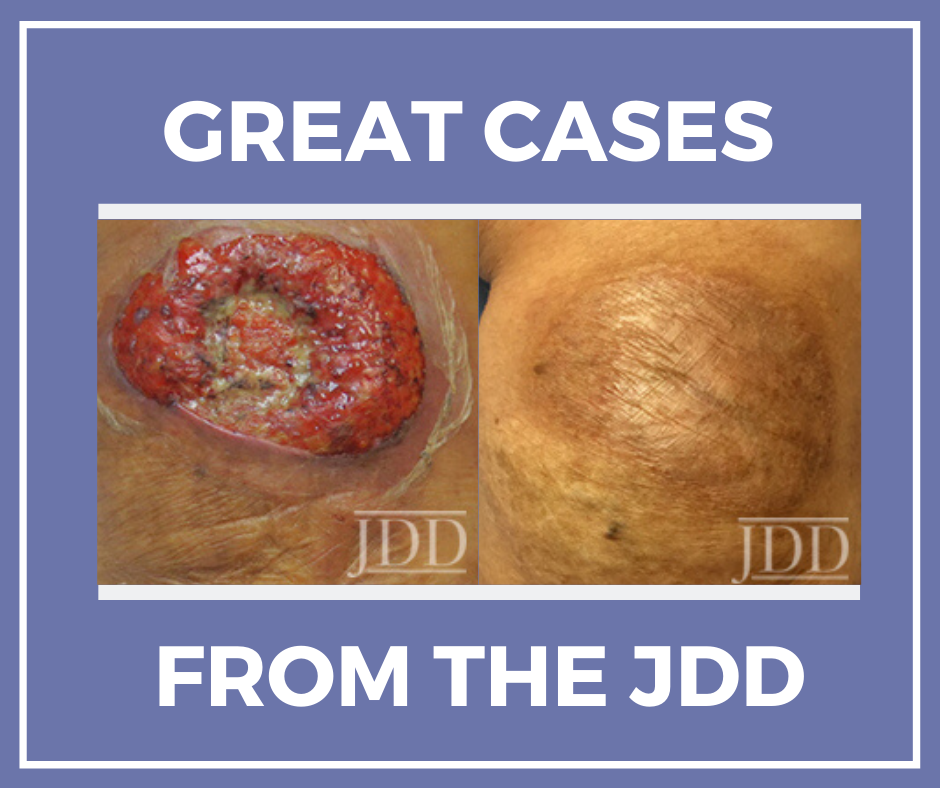 JDD authors Atrin Toussi BS BA, Stephanie T. Le MD, Virgina R. Barton MD, Chelsea Ma MD, Michelle Y. Cheng MD, Andrea Sukhov MD, Reason Wilken MD, Forum Patel MD, Elizabeth Wang MD, and Emanual Maverakis MD present a case of a 60-year-old woman with recalcitrant pyoderma gangrenosum treated with adalimumab, who paradoxically developed psoriasis.
Introduction
Pyoderma gangrenosum (PG) is …
JDD authors Atrin Toussi BS BA, Stephanie T. Le MD, Virgina R. Barton MD, Chelsea Ma MD, Michelle Y. Cheng MD, Andrea Sukhov MD, Reason Wilken MD, Forum Patel MD, Elizabeth Wang MD, and Emanual Maverakis MD present a case of a 60-year-old woman with recalcitrant pyoderma gangrenosum treated with adalimumab, who paradoxically developed psoriasis.
Introduction
Pyoderma gangrenosum (PG) is … 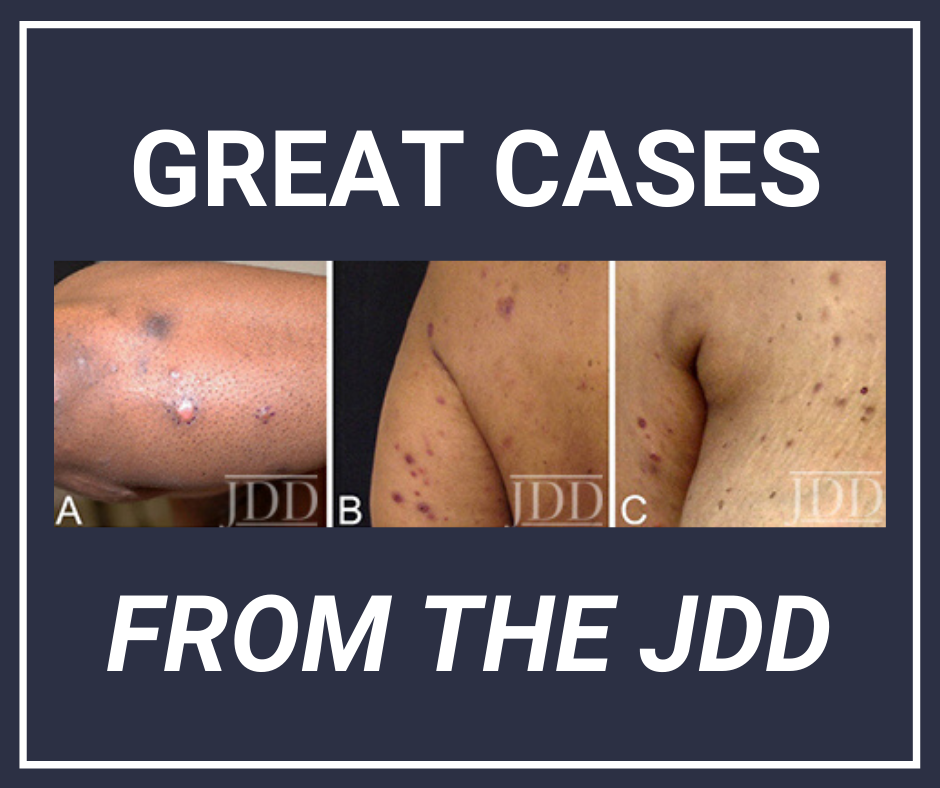 Lymphomatoid papulosis (LyP) is a CD30+ T-cell lymphoproliferative disorder (LPD) presenting as a recurrent eruption of papules and nodules which resolve spontaneously. CD30+ LPD prevalence in African American (AA)/Black patients is lower compared to White patients. CD30+ LPD has been recently reported to have worse outcomes in AA patients compared to White patients.
A retrospective chart revie …
Lymphomatoid papulosis (LyP) is a CD30+ T-cell lymphoproliferative disorder (LPD) presenting as a recurrent eruption of papules and nodules which resolve spontaneously. CD30+ LPD prevalence in African American (AA)/Black patients is lower compared to White patients. CD30+ LPD has been recently reported to have worse outcomes in AA patients compared to White patients.
A retrospective chart revie … 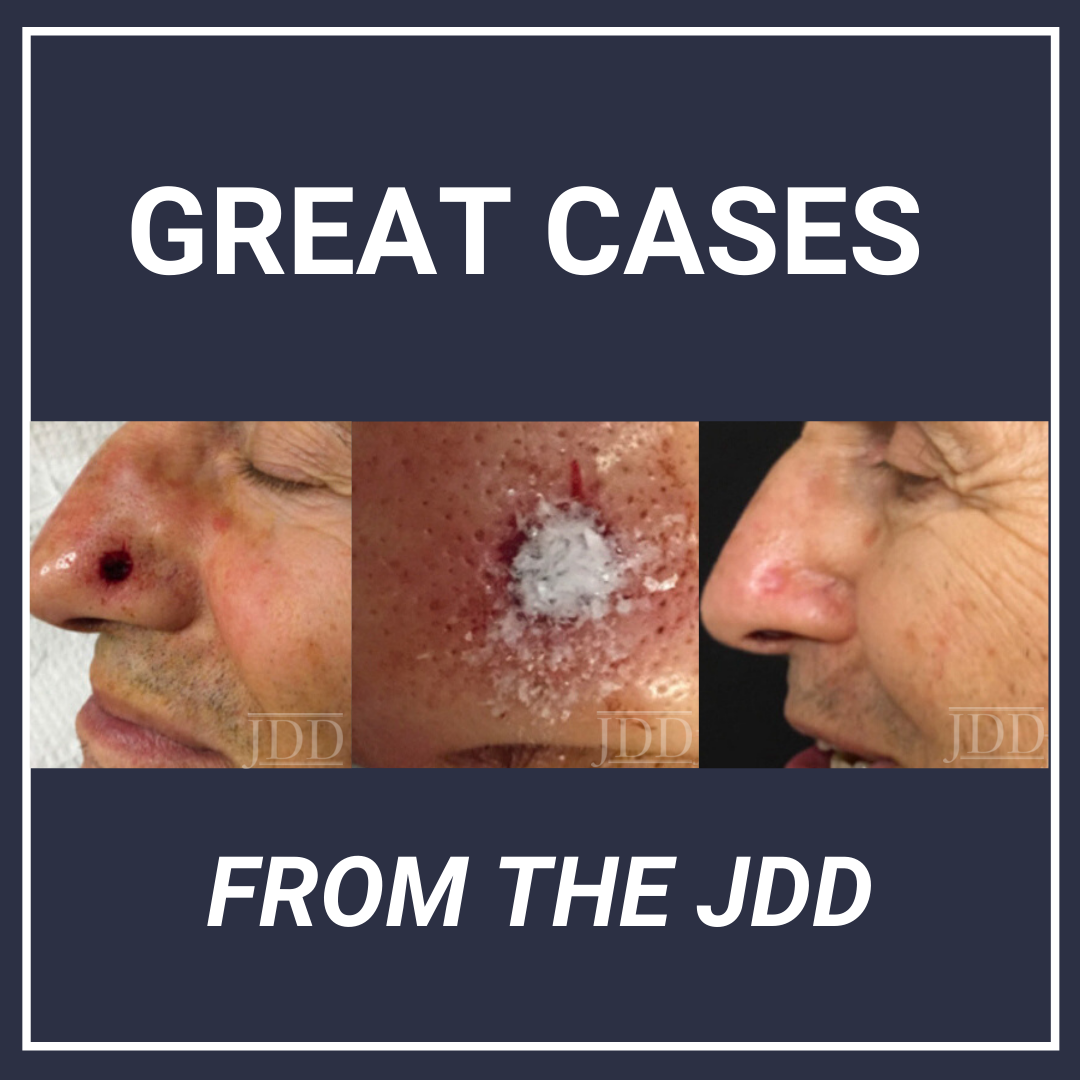 The fusion of technology and medicine has led to the advent of advanced wound healing techniques that may be adapted to the management of surgical defects. Shortened duration of healing and ease-of-use are two potential benefits under investigation. Here, Matthew J. Lin MD, Danielle P. Dubin BA, Aaron S. Farberg MD, Hooman Khorasani MD, David A. Kriegel MD describe a 65-year-old male with a nasal …
The fusion of technology and medicine has led to the advent of advanced wound healing techniques that may be adapted to the management of surgical defects. Shortened duration of healing and ease-of-use are two potential benefits under investigation. Here, Matthew J. Lin MD, Danielle P. Dubin BA, Aaron S. Farberg MD, Hooman Khorasani MD, David A. Kriegel MD describe a 65-year-old male with a nasal … 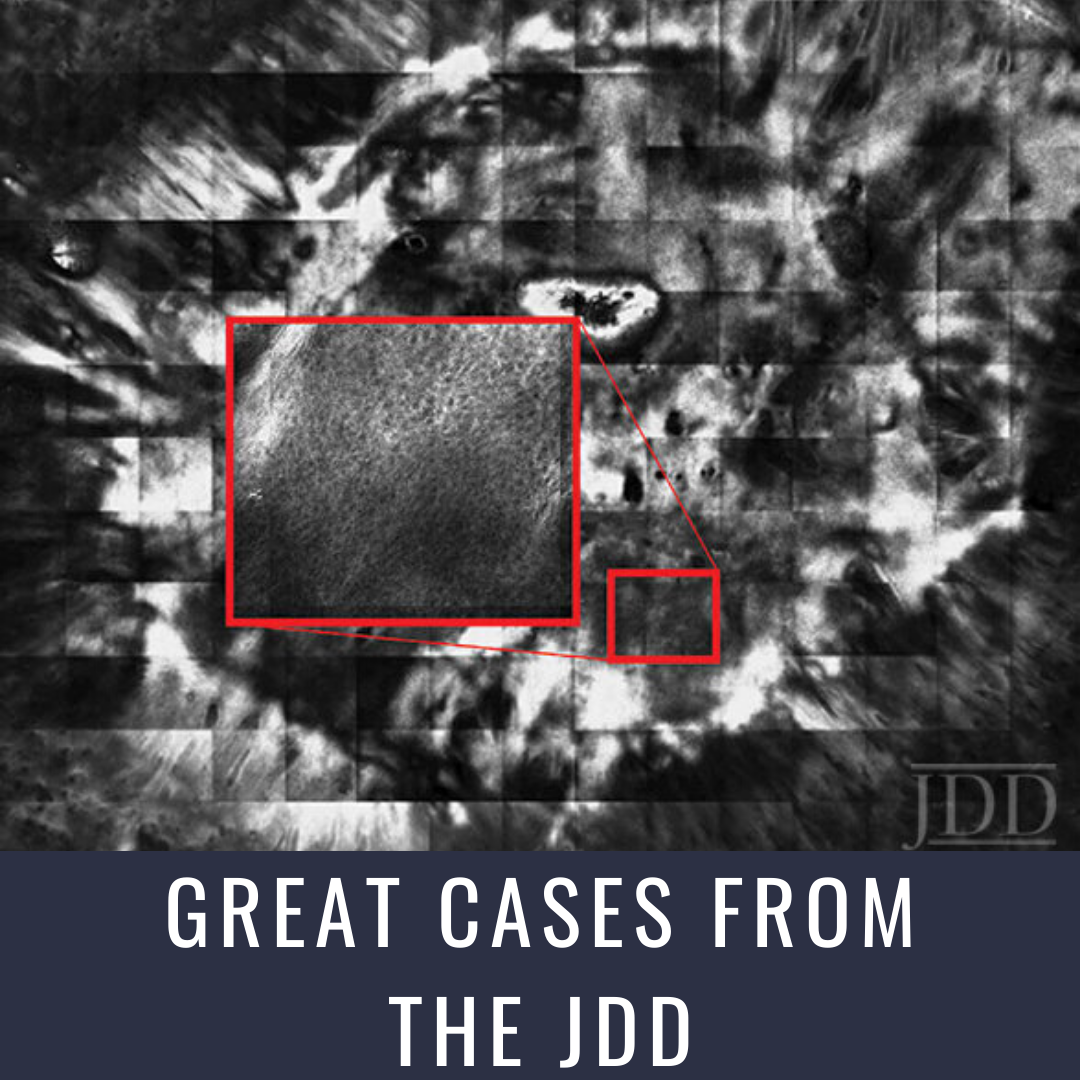 Reflectance Confocal Microscopy (RCM) is a new noninvasive skin imaging modality that is comparable to traditional histopathology. Authors Radhika Srivastava BA, Catherine Reilly BS, Gina Francisco MBS, Hamza Bhatti DO, and Babar K. Rao MD present serial in vivo RCM imaging of an atypical nevus after shave excision over a 1-month period. Findings on RCM images are consistent with the inflammatory, …
Reflectance Confocal Microscopy (RCM) is a new noninvasive skin imaging modality that is comparable to traditional histopathology. Authors Radhika Srivastava BA, Catherine Reilly BS, Gina Francisco MBS, Hamza Bhatti DO, and Babar K. Rao MD present serial in vivo RCM imaging of an atypical nevus after shave excision over a 1-month period. Findings on RCM images are consistent with the inflammatory, …